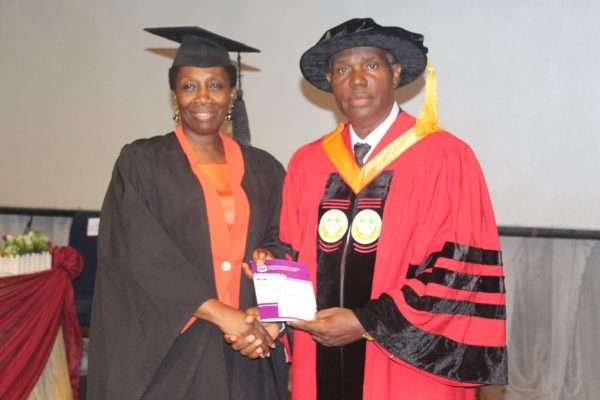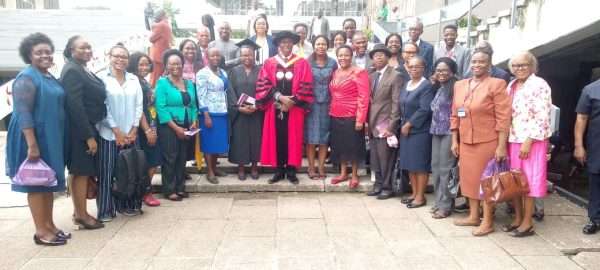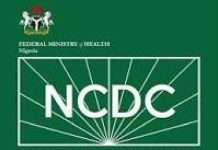– Charges pharmacist to be knowledgeable, minimise errors

A Professor of Pharmacy Management at the University of Lagos, Emmanuel Nwanolue Anyika, has called for the introduction of more management courses in the faculties of pharmacy across the country, noting that such a move will sharpen the business skills of the younger generation of pharmacists and ensure greater success in community practice, the pharmaceutical industry, hospital, and wholesale practices.
Prof. Anyika, whose area of research interest also includes pharmacy practice and Pharmacotherapeutics made the call on Wednesday while delivering the 2021/2022 Inaugural Lecture Series of the University of Lagos, titled “Navigating the pharmaceutical and management sciences in our world of healthcare uncertainty”.
In the lecture, he shared his experience in pharmaceutical and management sciences and how he has contributed to the body of knowledge in management sciences and pharmaceutical therapeutics. He also demonstrated the importance of management sciences in the Pharmacy profession and the healthcare delivery system. Anyika also showed the fusion of pharmaceutical and management sciences and as well established how management sciences influence the thought processes of a healthcare professional. He noted that there is an urgent need for the application of management principles in all pharmacy practice areas.

According to him, “An average Nigerian pharmacist chooses to remain in closed system to shield himself from environmental disturbances. Despite the uniqueness of his noble profession, he still does not believe that he is a big force to reckon with. The pharmacist is reluctant to acquire new skills, and self-development becomes an utopia. Unless he comes to terms with reality, the vicious cycle will never be broken. His intellect will keep begging to be used.
It was on this note that he called for more management courses to be taught in the faculties of pharmacy. He said “A postgraduate degree programme in pharmacy administration should commence to provide manpower for pharmacy management education as well as full development of teaching of pharmacy management to teaming population of pharmacist business owners, who are eager to acquire business skills.
He also advocated the establishment of full department of pharmacy management administration, adding that an interdisciplinary collaboration between the faculty of pharmacy and business administration would encourage the training of hybrid health professionals with high entrepreneurial skills.
Uncertainty and prescription error
Also in the lecture, Professor Anyika evaluated the uncertainties arising from prescription, dispensing, and medication administration errors in Nigeria’s healthcare system and also evaluated and reported their impact on pharmaceutical cares as well as the healthcare system.
While highlighting sources of uncertainty in healthcare, he noted that uncertainty has multiple varieties and according to him, probability is one of the sources of uncertainty in healthcare, which is the indeterminacy of future outcomes. He noted that clinical uncertainty could arise from the health professional’s medical knowledge, policy limitations, and/ or cognitive and effective functioning.
Ambiguity is another source of uncertainty in healthcare, which focuses on lack of evidence or contested evidence. He also noted that complexity is an aspect of multiplicity of causal factors; disclosing that uncertainty could arise from how individuals interact and form relationships, such as clinician to patient, clinician to clinician, clinician to pharmacist, and pharmacist to patient, among others.
Another source of uncertainty, according to Prof. Anyika is complexity, which is an aspect of multiplicity of causal factors. He explained further that uncertainty could also be a problem resulting from living within complex adaptive systems, where varying mixes of natural and man-made systems interact and resist control.
While assessing prescription-related uncertainty, he said his research team assessed prescribing errors and uncertainty, focusing on coping strategies of physicians and pharmacists in a tertiary university hospital, using doctors and pharmacists who experienced prescribing errors and uncertainty.
The study, according to the professor, revealed that 35.1 per cent of doctors and 40 per cent of pharmacists used in the study admitted to having committed medication errors but none of them disclosed to the patients that they have committed or noticed errors. He, therefore, called for quality organisational culture and structure to foster a care process that is less prone to prescribing errors and uncertainty.
Dispensing errors
In another study, titled “Dispensing errors (DE) and uncertainty: perspectives of pharmacists in a tertiary health facility in Lagos”, Prof. Anyika and his team’s data analyses showed human-based dimensions, human-system-based, and system-based or structural dimensions that would aggravate dispensing errors and uncertainty; hence they recommend that pharmacists, pharmacy technicians, and nurses need training to minimise dispensing errors.
He said “We investigated “Medication errors and healthcare uncertainty: Implications for pharmaceutical care in two tertiary hospitals”; multiple regression analyses show that two errors have more direct effect on healthcare uncertainty, and both types of errors have the greatest direct effect on pharmaceutical care”.
He also delved into regulatory uncertainty with a study titled “Regulatory uncertainties (RU) in the pharmaceutical Ssector: Perceptions among Nigerian pharmacists and policy implications for decision making”. The study, he noted, was carried out to assess pharmacy chief executives’ understanding of regulatory and environmental complexities in different practice areas, their policy choices, and decision-making.
On the finding of the study, he said majority noted that inadequate legislative control and regulatory uncertainties would increase business risks and cause varied enforcement decisions. They also recognised the role of politics in the outcomes in the pharmaceutical sector”.
In a short exclusive interview with Pharmanews, Prof. Anyika, urged pharmacists to be customer-focused so that the patients will feel their impact, even as he urged healthcare workers to try as much as possible to minimise errors.
UNILAG VC’s reaction
Reacting to the lecture, the UNLAG’s Vice-Chancellor, Professor Folasade Ogunsola, commended Prof. Anyika, for his contribution to the body of knowledge and the interesting lecture, stressing that the University of Lagos will look into some of the recommendations made in the lecture and implement where possible, so as to better pharmacy education in the country.
The VC said “Prof. Anyika has delivered another stimulating inaugural lecture, with his lecture titled “Navigating the pharmaceutical and management sciences in our world of healthcare uncertainty”. He has shown that he’s an all-around pharmacist, one who is grounded not just in pharmaceutical sciences, but also in business management and continues to use the platform of academia to advocate close interaction between the two spheres.
“He has been able to evaluate the uncertainties arising from prescribing, dispensing, and medication administration errors in our healthcare system and also evaluated and reported their impacts on pharmaceutical cares as well as the healthcare system. He has made many cogent recommendations and the University of Lagos will take a close look at them.
“Now that you have successfully paid your academic debt to the University of Lagos, on behalf of the Senate of the University of Lagos, you are hereby discharged and acquitted. I, therefore, welcome you to the committee of professors that have paid their dues”, she enthused.










